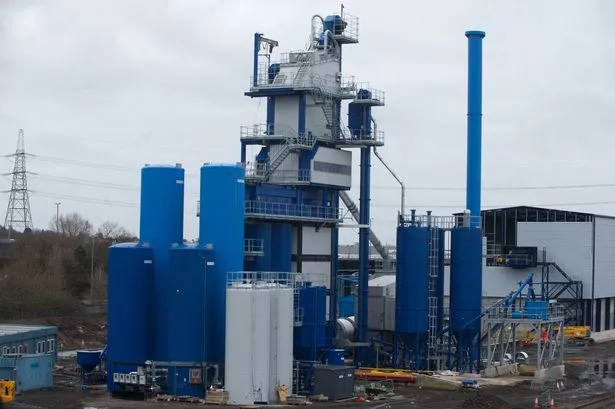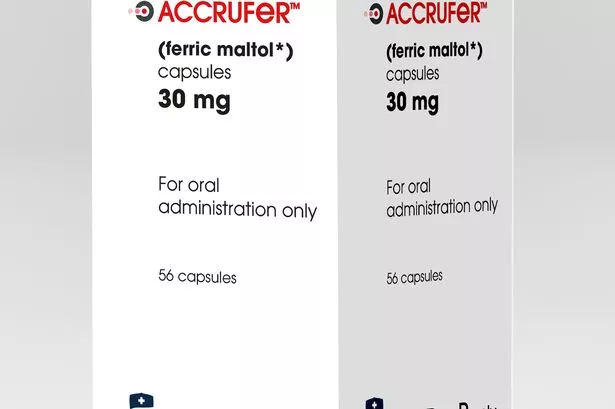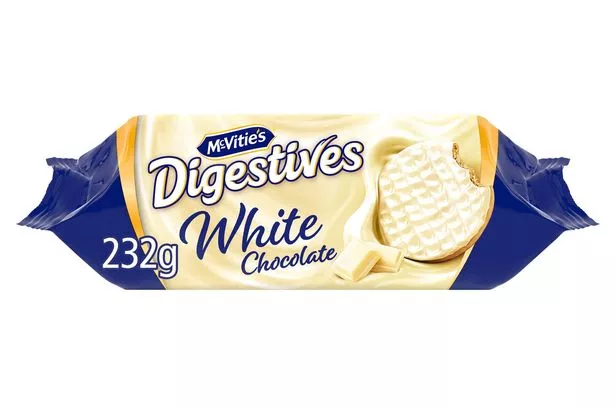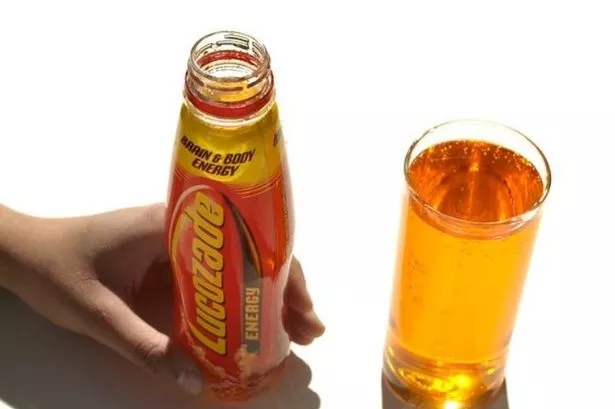
Advanced manufacturer Axiom upbeat on revenue growth
Advanced electronics manufacturer, Axiom Manufacturing Services, is forecasting double digit growth this year on the back of strategic investment and new client wins supporting a record order book. The Newbridge-based firm specialises bespoke design, build, and test solutions for global customers customers operating in the aerospace, defence and security, medical, and industrial sectors. Read More:We need a national conversation on the future of Welsh universities Read More:New professorial role for former First Minister Mark Drakeford Last year Axiom maintained turnover of around £55m for a third successive year, despite the pressures of rising costs and ongoing global supply chain disruptions that continue to affect the manufacturing sector. Over the last year it has invested more than £1.8m in the latest surface mount technology (SMT) and green infrastructure, to enhance its advanced printed circuit board assembly manufacturing capacity and capabilities, while reducing its carbon footprint. Further investments to reform customer facing teams are allowing Axiom to enhance turnaround times, bidding, and new product introductions (NPI). In addition to strengthening services for longstanding customers, these upgraded capabilities have allowed Axiom to expand into new highly reliability industrial technology markets, including visual experience company, Disguise. Chris Nye, managing director of Axiom Manufacturing Services, said: "Our achievements during this period are testament to the unified efforts of our entire team. Their dedication is enabling us to build on five years of success to secure our projected record-breaking double-digit growth in 2024.

Tarmac sheds jobs as turnover at building materials giant hits £2bn
Tarmac, the building materials group, has reported a turnover of £2bn during its latest financial year, marking an increase from the previous year's £1.99bn. The Solihull-based company also saw a significant rise in pre-tax profit, climbing from £125.9m to £168.1m, according to accounts recently filed with Companies House, as reported by City AM. Despite this financial upturn, Tarmac experienced a reduction in workforce numbers, dropping from 2,782 to 2,621 employees over the year, which led to nearly £5m in redundancy costs. In light of its stronger financial performance, the firm reduced its interim dividend from £230m down to £127m. Owned by Dublin-headquartered CRH plc, an international conglomerate of diversified building materials businesses, Tarmac's origins date back to 1903, although it was established in its current form in March 2013 following the merger of Anglo American's Tarmac UK and Lafarge's UK operations. The company enjoyed a £141m boost, as stated by the board: "The improved performance can be predominantly attributed to the £141m dividends received in the year." The statement further noted: "Underlying market conditions were relatively stable in 2023 albeit with variable levels of growth seen across the industry, with expansion in the infrastructure sector offset by a marked decline in residential." The company noted: "Cost inflation continued to be a factor during the period, albeit at lower levels to what has been experienced during 2022." They added that the effect of this had been offset by an optimisation program which delivered "The company has mitigated the impacted of this through an optimisation programme delivering benefits through commercial, operational and logistics excellence." For the same financial year, building materials giant CRH plc reported revenues of $34.9bn (£26.8bn), a seven per cent increase. Chief executive Albert Manifold commented on the results: "2023 marked another record year of financial delivery for CRH, supported by good underlying demand across our key end-use markets, further pricing progress and the continued benefits of our differentiated, customer-focused strategy."

Shield Therapeutics builds revenues as US prescriptions grow
Revenues grew more than threefold at pharmaceutical firm Shield Therapeutics over the first half of the year as it continues efforts to establish itself in the US market. The maker of iron deficiency tablets, which has operations on Tyneside, saw revenue increase to $12.1m (£9.2m) in the six months to the end of June, up from $3.7m (£2.8m) in the same period last year. The earnings came on the back of wider use of Shield's flagship Accrufer tablets with total prescriptions growing to about 65,200 - driven by sales in large US states such as California, Florida and Texas. But costs of staffing Shield's ambitious US expansion meant operating losses grew to $15.5m (£11.8m) during the first half, compared with $12.6m (£9.6m) in the first half of 2023. Shield's interim CEO Anders Lundstrom, who took the helm of the London-listed firm earlier this summer, said the business had a handle on its spending during the launch phase of the plan with partner Viatris. Read more: Healthcare entrepreneur donates £1.25m to set up Newcastle University academy Read more: Wholesaler Kitwave signals strong summer as investments pay off Meanwhile Shield saw progress in bringing its drugs to other overseas markets with Accrufer recently approved by Canadian health authorities; a new drug application filed for the tablets in South Korea, and advanced studies under way in China which the firm said were similar to that led to approvals from the European Medicines Agency (EMA) and US Food & Drug approval (FDA). It also told investors of a paediatric clinical trial focussed on children with iron deficiency anaemia. Anders Lundstrom, interim CEO of Shield Therapeutics, said: "H1 2024 has been another strong period of growth for Shield which is demonstrated through the significant increase in sales figures, net selling price and number of prescriptions for Accrufer in the US. We continue to focus on building momentum through creating greater awareness of Accrufer among health care professionals in the US as well as expanding our geographic reach with our international partners.

Sales boost fails to stem widening losses at Wilkinson Sword
Newly-filed documents have revealed that while Wilkinson Sword experienced a turnover boost, its pre-tax loss has significantly increased over its latest financial year. The firm, known for grooming brands such as Playtex, Hawaiian Tropic and Bulldog skincare, logged a revenue of £132.4m for the year ending 30 September, 2023, up from £116.9m during the previous 12 months, as reported by City AM. Despite an uptick in turnover, Wilkinson Sword saw its pre-tax losses deepen, moving from £4.4m to £10.3m across this timeframe, according to accounts submitted to Companies House. Factors contributing to the widened pre-tax loss include rising production costs, investments in marketing for Bulldog, a partial loan write-off from an associated firm, along with further depreciation on investment in an associate. In the UK, the company's sales rose from £60m to £64.3m within the year, while European sales increased from £55.4m to £66m and rest-of-world figures grew from £1.4m to £2.1m A statement from the firm's board, accompanying the accounts, indicated: "The external commercial environment is expected to remain competitive in the next financial year." It added, "The company continues to seek opportunities to increase sales, market share, profit and maximise future opportunities." In supplementary filings, Bulldog reported a raise in turnover to £765,089 from £655,651, with its profits also climbing from £609,136 to £879,769. Wilkinson Sword's filings arrived at Companies House beyond the deadline by over two months. Looking ahead, the companys results for the year running up to 30 September, 2024, are slated for submission by the end of June 2025.

McVitie's profits skyrocket to £131.3m, driven by white chocolate digestives success
The launch of white chocolate digestives has significantly boosted the profits of McVitie's owner, Pladis Foods, by nearly £130m in its most recent financial year. The company reported a pre-tax profit of £131.3m for 2023, a substantial increase from the £2.8m it posted for 2022, as reported by City AM. According to newly-filed accounts with Companies House, its revenue also saw an increase, rising from £2.54bn to £2.75bn over the same period. Pladis attributed this revenue growth to innovative strategies across its brands, such as the introduction of new products like McVitie's white chocolate digestives. The group also noted growth in its convenience, impulse and discount channels. The success of McVitie's white chocolate digestives was further credited to their feature in a BBC documentary, which led to sales exceeding all forecasts. In a statement approved by the board, it was emphasised that innovation is crucial to Pladis' operations. The statement read: "It reshapes the way the company works, helping to streamline processes, enhances efficiency and facilitate the means through which some of the company's biggest challenges can be addressed, such as sustainable packaging or the sourcing and inclusion of more natural ingredients." These results follow after UMV Global Foods Holding Company, part of London-based Pladis, reported a revenue of £1.2bn for the 12 months, up from £1.1bn. UMV, the producer of popular snacks such as Mcvitie's Digestives, Jaffa Cakes, Jacob's Cream Crackers, Mini Cheddars, Carrs, Mcvitie's Penguin bars and Jacob's Twiglets, has reported a pre-tax profit surge to £17.3m for 2023, a significant increase from the previous year's £600,000.

Suntory Beverage sees continued success with Lucozade and Ribena, boosting profits amidst inflation challenges
The UK-based company behind popular beverages such as Lucozade, Ribena and Orangina has reported a seventh consecutive year of profit increase, alongside a continued post-pandemic sales rise. Suntory Beverage & Food GB&I, which has a factory in Gloucestershire, posted a pre-tax profit of £109.1m for 2023, an increase from the previous year's £100.7m, according to recently filed accounts with Companies House. The Uxbridge division last saw a drop in its pre-tax profit back in 2016, as reported by City AM. In addition, the company's turnover also experienced growth, rising from £517.5m to £542.9m in 2023 marking the third consecutive increase. Suntory Beverage & Food GB&I's UK revenue rose from £484.2m to £504.2m, while its European sales also increased from £32.1m to £37.5m. However, its revenue in Asia remained static at £1.1m. Despite implementing "cost mitigation measures", gross profit rose from £257m to £262m, but the margin fell from 50 per cent to 48 per cent due to inflationary cost pressures. Administrative costs were reduced from £120m to £116m thanks to "targeted cost savings", resulting in an operating profit increase from £97m to £107m. In a statement approved by the board, it was noted: "The company has a continued focus on the long-term revenue strategy and inflation mitigation to ensure the company continues meeting the changes in consumer needs." The company emphasised its commitment to enhancing its business by stating: "The company continued with its efforts to build and focus on strengthening key customer and supplier relationships, operational efficiency at its manufacturing site in Coleford, brand positioning and new marketing activities including distribution and brand development." It also acknowledged the challenging economic environment: "These results and activities have been accomplished against tough economic circumstances as a result of unprecedented inflation."